Last week marked the beginning of the Jewish New Year, Rosh Hashanah, the first of Judaism’s high holy days, with Yom Kippur coming this week. But Monday marks the anniversary of a tragedy: Hamas’ barbaric attack on Israel last October 7. We often take time to remember such tragedies years, decades, and even centuries after they occurred.
In this week’s Dispatch Faith, Rabbi David Wolpe explains why remembering such tragedies is integral to the Jewish faith.
David Wolpe: October 7 and the Perils of Memory
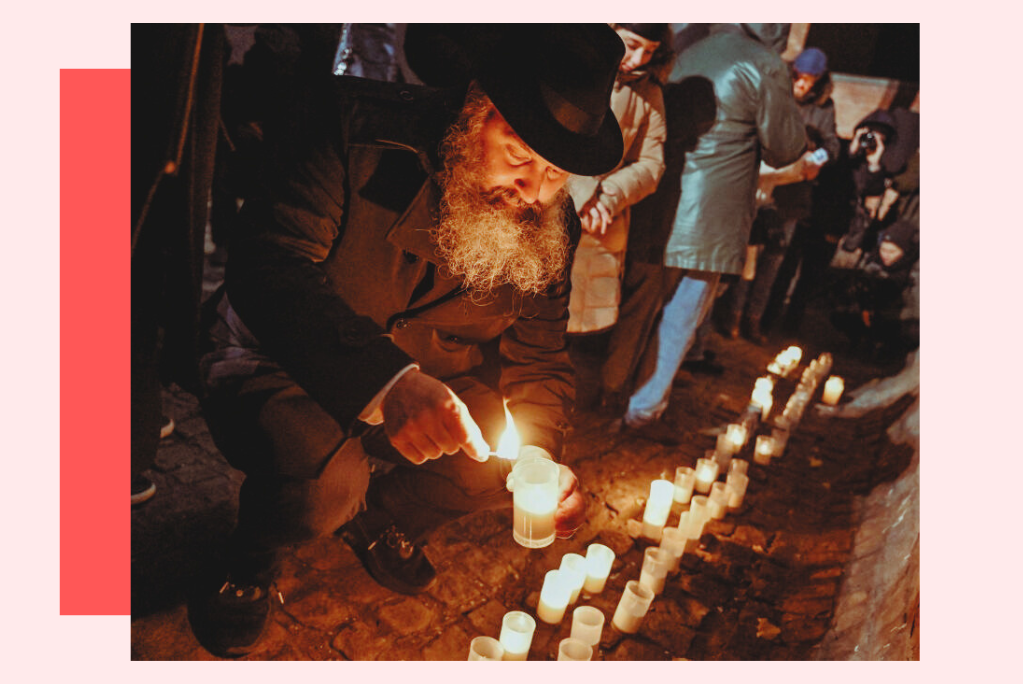
In 582 BCE, the governor of Judea was assassinated. The Temple had already been destroyed. More than 2,500 years later, observant Jews still fast from sundown to sunset to recall the fate of Gedaliah, and the end for a time of all sovereignty in Judea.
Do we need to fast for the death of someone who was killed 600 years before the death of Caesar? Is this admirable or pathological? I recall when traveling in Vietnam being amazed at the almost marginal place that the memory of the Vietnam War held in society there. The war museum was a mandatory visit and a powerful and solemn experience. Yet war did not dominate the conversation or the daily life of Vietnamese. I wondered at the time: What are the relative values of remembering versus pigeonholing one’s recollections? Is it sometimes healthier to forget? In Judaism God is called Zochair kol Hanishkachot—the one who remembers all things forgotten. Perhaps forgetting is an essential function? Can it be that forgetfulness enables us to heal?
These questions arise with particular poignancy on the anniversary of October 7. I’ve spoken with people who lost family in the war—both soldiers and captives. Just like survivors of the Holocaust they are haunted both by the experience and the prospect of forgetting. “Unsung, the noblest deed will die,” wrote the Greek poet Pindar, and what is true of actions is true of people. We honor pain through memory and we know that people die twice—the second time when no one on earth still speaks their name. But that is now, in the freshness of pain. What purpose is served by the durability of memory?
I was brought back to Gedaliah and the fast in his name because of an extraordinary experience on one of my visits to Israel this past year. In Jerusalem work is underway on a complex to house all of the greatest archaeological finds in Israel. Among the gems of the collection are the only perfectly preserved Roman swords in the world, their wooden and leather hilts and scabbards and steel blades all in exquisite condition. They were apparently stolen by Judean rebels in the first or second century CE and brought to the desert in the hope of being used later in the battle. But the rebels never had a chance and the desert climate kept them pristine, as if in fidelity to the future.
Right after that visit I boarded a helicopter and flew along the Mediterranean coast, past Crusader Akko (Acre), Roman Caesarea—almost all of the history of an embattled land in one helicopter trip. Landing at Technion in Haifa I met students working in robotics, space flight, engineering, and other fields. Each of them had lost hundreds of days of school to fight in Gaza. One had hidden with his family in a kibbutz on October 7. Another lost family. Each knew people, fellow students or friends, who had died in the fighting or in the initial massacre. They were plagued with nightmares and knew they would be called up again after—or perhaps even before—exams. It struck me that they were probably the same age as the rebels who had stolen those swords to hide in the desert. The continuum of defending the land stretched back thousands of years. I knew these students had been brought up in a culture that treasured the past and although they may not have known of the swords, they knew the tradition. They put me in mind of a passage from 1 Maccabees: “Remember what our ancestors did and how much they accomplished in their day. Follow their example” (1 Maccabees 2:51).
October 7 was a break in Jewish history. It was a break inside and outside, both in the Jewish world and in the world at large. It was a violation of the compact that Zionism had with the citizens of Israel, that it would protect them in their own land. That was the break inside of Jewish history. Having spent the past year as a visiting scholar at Harvard Divinity School, I had witnessed the liberation of the ugly id of hatred against Jews outside of our own history. Because antisemitism is not essentially a problem of the Jews, but a disorder of the hater.
Not everyone who shouted or shook a fist was a hater of Jews, of course. But I saw enough communication among students, heard enough praise for Hamas and Hezbollah, listened to people chanting about the river to the sea (even after they actually learned what those words mean) to know that the oldest hatred endured and flourished in the most renowned institutions in the Western world. I saw the twisted and angry countenance of the hater in the privileged Ivy League freshman wrapped in his newly acquired keffiyeh.
Amid all of this, what is it that Jews should remember? When we speak of Gedaliah, or of Hersh Goldberg-Polin (an October 7 hostage murdered by Hamas) we are not really engaged in an historical act. The words of the great Jewish historian Yosef H. Yerushalmi in his brief tract “Zakhor” (memory):
The Jews who mourned in the synagogue over the loss of the Temple all knew a date of the month, but I doubt if most knew or cared about the exact year when either the First or Second Temples were destroyed, let alone the tactics and weapons employed. They knew that Babylonians and then Romans had been the destroyers, but neither Babylon nor Rome could have been historical realities for them. The memories articulated in dirges of great poetic power were elemental and moving, but phrased in modes that simply bypass our notions of “knowing history.”
Jewish memory is a kind of spiritual pattern recognition. The destruction of the Temple is an historical event, yet we do not mourn it as history, but as a marker in the train of loss that marks so much of the Jewish story. The Temple was the center of Judaism. As Jews dispersed, only by believing in a universal God who could accompany them in their pain to every corner of the world could the tradition and the people survive. The same God who accompanied us afflicted us, and that theological struggle stands at the heart of the Jewish experience. We are comforted and challenged by God’s promise and God’s presence.
The Jewish experience has been one of cries to heaven that echo and build through generations. The chorus of loss grows in each age, both for individuals and for the people as a whole. We mourn those we have lost in our lives, of course, and the pain of parents who are bereaved is unimaginable. Yet here too the very language bears the impress of pattern: Hebrew has a word that applies only to bereaved parents, shakul. Can one conceive of a history so studded with such loss that there needs to be a designated word? Mourning for Hersh pulls on a long thread of sadness.
Memory seems like a passive attribute, but not in the Jewish tradition. Memory allies with anger, with incomprehension, with a sense of radical imbalance in what Jews have given the world and the return it has given back. Memory is a spur to action and a ritualized reenactment of the past. We remember not only to honor but to anticipate.
And for Judaism we remember because it is a command to remember. “Remember” is the most repeated commandment in the Bible. The imperative of the Hebrew word zachor is mentioned more than 25 times. We are asked to remember what God has done for us, that we have survived the hardships. We place a mezuzah on the doorpost to remember. Even those things seemingly too painful to remember we are enjoined to recall. We are told to wipe out the memory of Amalek, the tribe that attacked Israel in the desert, and then commanded, “Do not forget.” The one name in the reading of the story of Purim that we cannot ignore is Haman’s, the man who sought to destroy the Jews, because we make noise to blot out his name as it is read, paradoxically heightening our awareness of it. Gratitude to God in the form of memory embraces the bad along with the good. The sin is not anger but indifference; not struggle, but forgetfulness.
For the Jewish people amnesia is not an option. Jewish memory is both a tribute and a harbinger. It is what we owe to God, and to those who suffered and those who died. The dead should not be forgotten in the press of the everyday. The poignancy of loss cannot be fully calmed by the blanket of passing time. But memory is also a species of prophecy. Jews who forget the past are bound to have it repeated at them, on them, again and again. The State of Israel was established because we remembered.
When God speaks to Elijah on the Mountain of Carmel (1 Kings 18), the King James Bible translates God’s as the “still small voice.” But a literal translation of the phrase is “the thin voice of silence.” Those who have been murdered speak to us in the thin voice of silence. But like the voice on that mountain thousands of years ago, we still hear and we still heed.
More Sunday Reads and A Good Word
The “More Sunday Reads” and “A Good Word” segments of this newsletter are usually full of what I think are some of the most interesting bits of religion-related reading I’ve come across during the week, and something encouraging. This week, the two are really one. While my neck of the woods in Appalachia continues to recover from tragic floods brought on by Hurricane Helene, I wanted to highlight the ways in which folks of faith are trying to help their neighbors, seeking the good of their respective communities.
- For Forward, Rabbi Justin Goldstein writes about lessons of Rosh Hashanah—the Jewish new year—amid his devastated hometown of Asheville, North Carolina. “Standing on a bridge over the raging, swollen French Broad River, my 13-year-old daughter, Naviyah, and I witnessed a beloved part of Asheville nearly submerged in water, surrounded by friends and neighbors staring at the immense loss before our eyes. Beer kegs, wine barrels, modular homes, mobile homes, shipping containers, kayaks, and endless debris floated away beneath us. Beyond the objects, we knew there were loved ones taken by the floodwaters beneath the surface. So much of the loss is unrecoverable. And while there is immense suffering and destruction, the people of the communities of western North Carolina, throughout Appalachia, and those further south are supporting one another and rebuilding their lives. Our resilience will allow us to persevere and recover what we have built. In that moment on the bridge, trying to find even the slightest lightheartedness amid the devastation, my daughter and I got wrapped up in an intense debate about which objects a person might keep and which objects an owner might search for. ‘Come and hear: if a river swept away one’s beans, wood, or stones, they belong to the finder,’ the Talmud states, in a passage she and I happened to read together a few weeks earlier. We discussed the fine points of the text, before leaving the bridge for the short walk home. People filled the streets, embracing neighbors, sharing resources, supporting the most vulnerable, or just standing in silence and disbelief.”
- Lots of stories this week have focused on how faith communities—either via churches, non-profits, or just believers—have responded to the aftermath of Helene. Early in the week, Christianity Today’s Emily Belz offered a high-level view at the gargantuan task before a host of faith-based organizations whose mission is to help in the worst of times.“‘In my more than 20 years of disaster experience, I can’t think of a time when such a large area was at risk,’ Jeff Jellets, the disaster coordinator for The Salvation Army’s work in the South, said in a statement. Samaritan’s Purse chief operating officer Edward Graham told CT that the organization had to call in equipment and volunteers from its Canadian arm for its hurricane response and even had to adjust some of its overseas work. Just for this disaster, Samaritan’s Purse is operating in Florida, Georgia, and North Carolina. ‘We’re running at max capacity for our domestic response,’ Graham said. But he added, ‘Logistically, God has given us the resources and the talent to navigate.’”
- In Asheville, individual churches and denominational efforts were some of the first to mobilize in response to Helene’s damage. “Teams of Southern Baptist volunteers on chainsaw crews are deploying out to clear trees, tarp roofs damaged by wind and trees, and to treat flooded homes to try and prevent mold, said Mark Hinson, a site coordinator for the North Carolina Baptists’ disaster relief arm,” reported the USA Today Network’s Liam Adams. “The latter projects involve tearing out walls, cabinets, toilets, showers and bathtubs, water heaters, insulation, floors and sub-floors. ‘If you don’t tear it out and let it air out and dry and spray it with the mold treatment, it (mold) will just keep growing,’ said Hinson, who’s managing recovery teams based at Biltmore Church’s Arden campus. The Southern Baptist chainsaw teams are mostly working in residential areas. Hinson’s teams out of the Arden campus have received 53 requests alone and Hinson said the total across all recovery sites is likely in the hundreds.
- And for the National Catholic Reporter, Barb Faze reports on efforts by Catholic parishes in both North Carolina and Tennessee. “The priests of St. Eugene Parish in Asheville, North Carolina, were doing their best to help people suffering from the devastation of Hurricane Helene, which left at least 30 people dead in Buncombe County,” Faze wrote of North Carolina efforts, going on to quote Father Doug May. “‘Asheville has not experienced such devastating rains, winds, flooding and an almost total breakdown of the infrastructure for over a century,’ May told NCR. ‘With few exceptions, we’ve had no electricity, water or telecommunications for the last five days. Crews are gradually clearing major and secondary roads of downed trees, downed power lines and landslides.’ Generally, there are no current means to text or call,’ he said. ‘There are approximately 30 people standing around and sitting in their cars trying to contact family and friends to assure them that they are safe and hear their voices.’”
- Meanwhile in Erwin, Tennessee, the small mission of St. Michael the Archangel, which lost two of its members in the floods, is mobilizing. Faze talked to parish staff member Corey Soignier. “Immediately after the storm, he said, parishioners began collecting water, nonperishables, baby products, cleaning products — ‘everyday items that we sometimes forget about, that these people who lost everything need. The response has been amazing here,’ he said. ‘Our parishioners have been at the high school helping out. They’ve been out in the community, trying to get their hands into what they can.’ They keep trying to figure out ‘what more can we do, what more can we do.’”
Say What?
The crew over at The Morning Dispatch has the market cornered on “Presented Without Comment,” but I wanted to drop this story here with much comment. Make of it what you will. The Oklahoman: “Trump Bible” one of the few that meets criteria for Oklahoma classrooms.

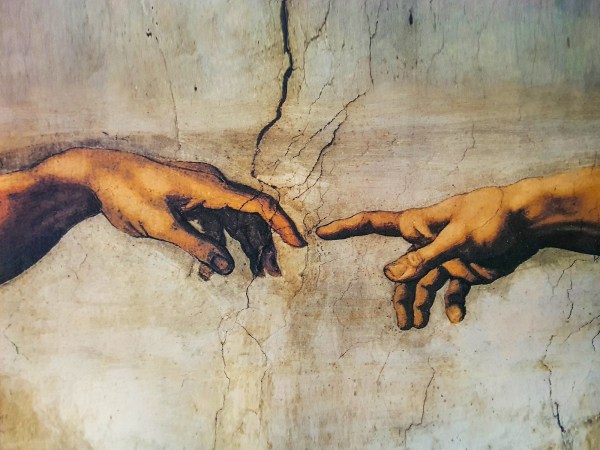
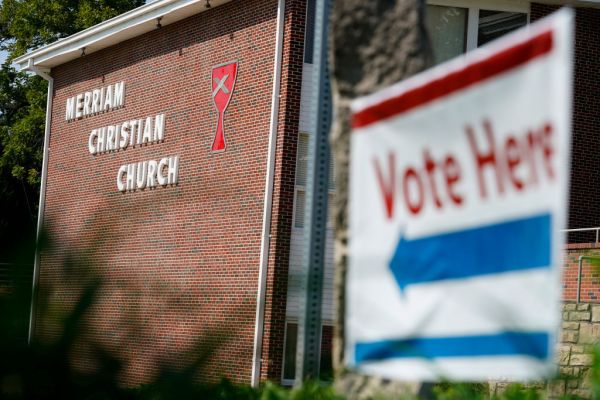
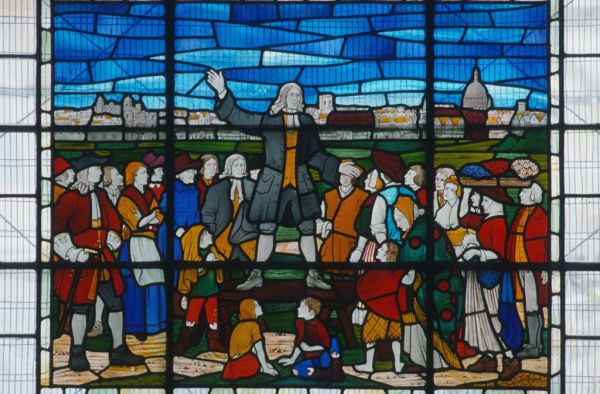

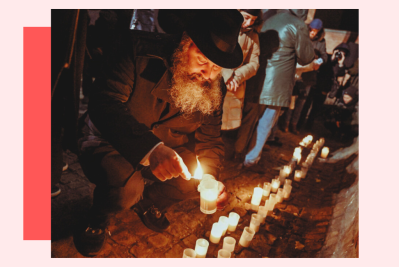
Please note that we at The Dispatch hold ourselves, our work, and our commenters to a higher standard than other places on the internet. We welcome comments that foster genuine debate or discussion—including comments critical of us or our work—but responses that include ad hominem attacks on fellow Dispatch members or are intended to stoke fear and anger may be moderated.
With your membership, you only have the ability to comment on The Morning Dispatch articles. Consider upgrading to join the conversation everywhere.